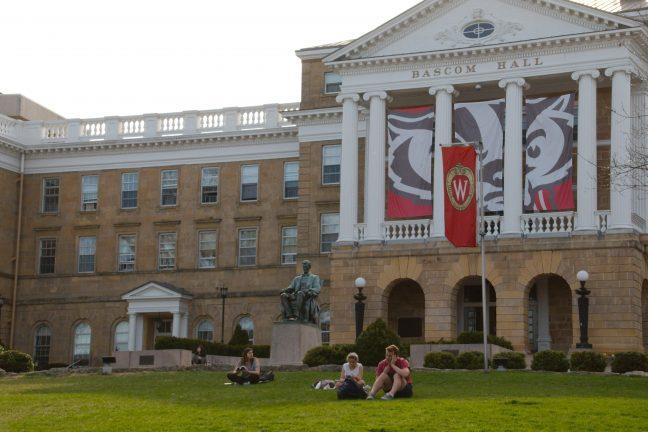Thousands of companies work with students from the University of Wisconsin every year through opportunities such as internships, resume workshops and career fairs.
Many of these companies work hard throughout the year to gain visibility by UW students. Megan O’Rourke, a business engagement director at UW, said that UW students have many talents that make businesses eager to work with them.
“Companies like working with UW Madison students because of their work ethic,” O’Rourke said. “It’s not an easy university to get into, a lot of the students here are hard-working and have academic expertise. [They also] have a really interesting global perspective. It’s a relatively diverse student body because of the large international student population and students who study abroad.”
Recently, a few of these companies such as Morningstar Inc., Pharmaceutical Product Development and GE Healthcare have personally shared why they love working with students from UW.
Susan Harrington, a senior university recruitment specialist at PPD and a UW alumna, said the company has worked with UW students for many years and have sought after them because of their unique skill sets.
“I think that we love working with Madison students because their interests and passions align very well with PPDs mission to improve health,” Harrington said. “So many of them just want to be able to make a difference in somebody else’s life.”
Harrington made it clear that one of the most important qualities for an internship or job candidate to have is the ability to broaden their knowledge base. While UW students have a lot to offer, they also have a lot to learn when partnering with these companies.
Harrington said that PPD focuses on teaching students technical skills such as learning the ins and outs of lab instrumentation and the big picture, interpersonal skills.
“To help grow their interpersonal skills, we have lunch-n-learns including presentation skills, networking skills and others that will help once they enter the professional world,” Harrington said.
O’Rourke also said the primary thing hiring companies look for in an applicant is academic success, followed by previous work experience and active involvement in student organizations.
According to O’Rourke, these companies are looking for a student who has worked to build a good resume and has proved their ability to juggle several commitments at once. But students are never taught the components of a good resume or the skills needed for an interview in school. O’Rourke said some companies have begun to take on that role for students.
“Instead of companies coming to campus to tell students information about what they do, they are taking it a step farther through mock interview sessions and resume workshops,” O’Rourke said. “Students tend to take it more to heart when they hear it from companies and organizations that they want to work with rather than from university employees.”
While educational workshops have started to become more common amongst recruiting companies, lots of businesses still rely on career fairs to bring attention to themselves.
There are many mixed feelings amongst UW students about the practicality and success of career fairs. Students often get nervous and overwhelmed by the amount of companies and students in attendance.
“There are always critiques about career fairs, but they still remain the number one way that organizations… recruit students and are still the most effective,” O’Rourke said. “Although it’s nerve-wracking, students still like to meet with those employers face to face.”
Despite the anxiety career fairs bring to students, O’Rourke mentioned it’s been proven to still be the most effective way for students to get into contact with potential employers.
O’Rourke also said career fairs are just one touchpoint for companies. They are generally just the first step in raising brand awareness, followed by methods that were previously mentioned such as mock interviews or internship programs.
“Career fairs are only one touch point, not the only touch point that employers use,” O’Rourke said. “They use a variety of different ways to interact with students, but career fairs are still very useful for companies.”
Many companies are willing to go above and beyond in the process of recruiting UW students.
Harrington explained that UW students have not only the hard skills needed to perform well at their company, but the soft skills as well.
“Madison is a really big school, but I think that that really helps prepare students to be proactive,” Harrington said. “They always want to learn more and are eager to expand their skill sets.”


